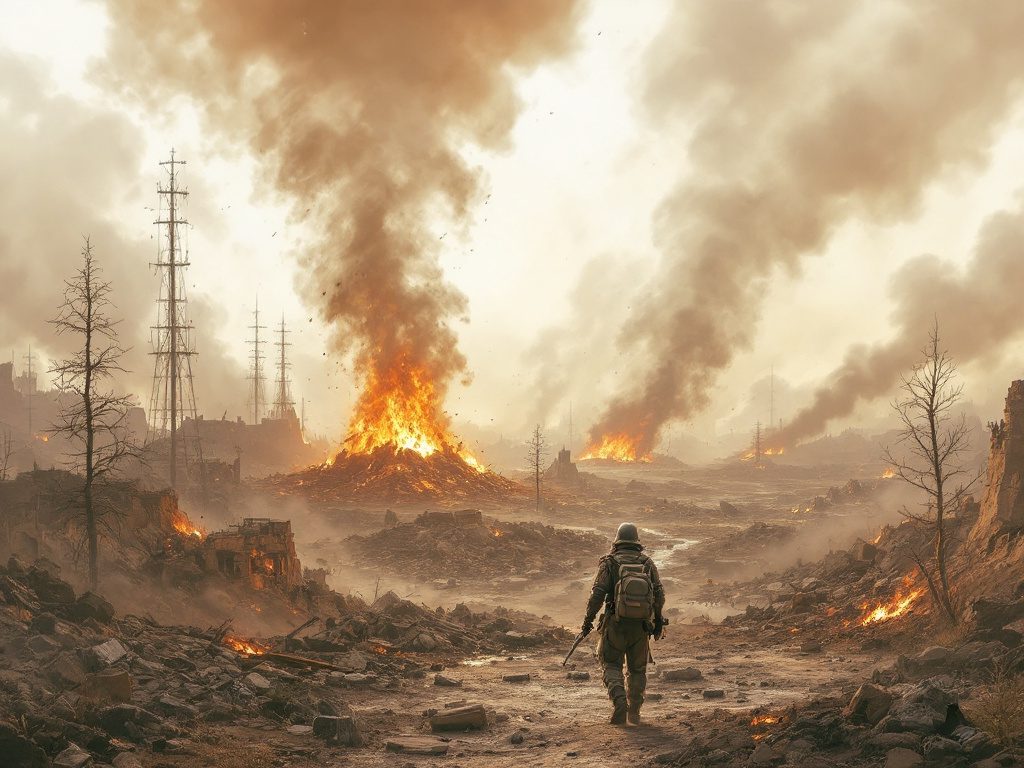The World Watches as Gaza’s Catastrophe Unfolds
“History doesn’t repeat, but it rhymes.” The words ring painfully relevant in 2025, as Amnesty International’s State of the World’s Human Rights report delivers a scathing rebuke of global inaction—and, crucially, of Western complicity—over Israel’s ongoing war in Gaza. Unlike the untelevised horrors of prior generations, this conflict is inescapably broadcast to our devices: mass displacement, bombed hospitals, hollow-eyed children. It’s a tragedy streamed in real time, stripping away the comfort of plausible deniability for governments and citizens alike.
Since October 2024, Gaza’s nightmare has unfolded before millions. According to Amnesty, Israeli forces have forcibly driven about 1.9 million Gazans—some 90% of the enclave’s population—from their homes. Israel’s military response, initiated after the horrific October 7, 2023 Hamas attacks that killed more than a thousand Israelis, has produced relentless airstrikes, siege, and now, an almost hermetic blockade on vital supplies. As of early June, the besieged population faces a near-complete cutoff of food, water, fuel, and medicine. Every desperate plea for aid is a reminder: the world is watching and, thus far, doing alarmingly little to stop collective suffering.
The United Nations and international humanitarian agencies have documented the toll: tens of thousands killed, whole family lines extinguished, infrastructure decimated. UNRWA’s head recently described aid restrictions as a “silent killer,” highlighting a mounting death toll—not simply from bombs, but from deliberate deprivation. Volker Türk, the UN’s rights chief, called for “concerted efforts” to break the blockade. Yet the deliveries stall, the suffering multiplies, and screens worldwide flicker with images of death and displacement.
Complicity and Double Standards: The West’s Bleak Stance
Peel away the diplomatic language, and Amnesty’s accusation against the United States and its European partners is shockingly direct. This is no call to action from the margins. Secretary General Agnès Callamard singles out both American political parties for unwavering support: “2024 will be remembered for how Israel’s military occupation grew ever more brazen and deadly, for the way the USA, Germany and a handful of other European states supported Israel; the way the USA, under the Biden administration, repeatedly vetoed UN Security Council resolutions calling for a ceasefire.”
Why the difference in response? International law is treated as either sacred or suggestive, depending on the protagonists. When Russia’s invasion of Ukraine drew ICC indictments for Vladimir Putin, Western capitals rushed to champion the cause of justice. In Gaza, however, these same nations “wilfully ignore orders of the International Court of Justice and indictments of the International Criminal Court,” as Amnesty’s report underscores. Few ironies are starker than watching states cheer international prosecutions in one theater while arming and abetting abuses in another.
Beyond that, arms transfers to Israel continue at a steady pace, even as mass civilian casualties mount and humanitarian corridors shrink. The Biden administration’s vetoes at the United Nations, paired with bipartisan Congressional endorsement of Israeli military operations, send a clear message: for Palestinian victims, international law is negotiable. Yet polling by Pew Research and Gallup indicates that a growing share of American voters, especially progressives and younger adults, now question this carte blanche approach. The disconnect between public sentiment and political orthodoxy has likely never been so pronounced.
“With every bombed-out shelter live-streamed and every convoy turned away, we bear witness not just to a humanitarian crisis but to the collapse of credibility for those championing a rules-based order—except, it seems, in the Middle East.”
A closer look reveals this is not simply a humanitarian failure. It is also a crisis of Western values—equality, human rights, and accountability—that progressives once believed could transcend borders. The refusal to hold a close ally accountable exposes the transactional core behind grand speeches. Harvard law professor Sarah Leah Whitson, an expert in international rights law, warns that “these selective standards undermine faith in every future international court ruling, and embolden every actor willing to defy humanitarian law when it’s geopolitically convenient.”
Propaganda, Dehumanization, and the Consequence of Inaction
Amnesty’s report goes further than laying out statistics. It indicts the moral vernacular of our age. Social media’s relentless amplification—from combatants and states alike—has, according to Callamard, fueled a wave of dehumanizing narratives against Palestinians. The public now navigates not just real carnage but a shifting fog of digital disinformation: images misattributed, trauma trivialized, the suffering of entire communities degraded to political talking points or war porn. Echoes of the Yugoslav wars, Rwanda, and Syria hover over the discourse, yet rarely have such atrocities been so instantly and persistently visible.
This exposure brings responsibility. Unlike tragedies sealed off by censorship in decades past, Gaza’s agony is uncensored and interactive. As Amnesty argues, the proliferation of live images has not catalyzed decisive action—if anything, it has fueled public polarization, hardened political positions, and been weaponized to legitimize further violence. The Western tendency to see law and human rights as tools rather than universal safeguards risks setting long-lasting precedence for global crisis response. Jane Ferguson, an award-winning war correspondent, recently wrote that, “the screens may have changed, but the cycle of impunity looks hauntingly familiar.”
Is this the legacy the so-called free world wants to etch into global memory? Collective silence, occasionally punctuated by platitudes, will surely haunt policy-makers and bystanders alike in the years to come.
Yet hope is not lost. As movements of ordinary people—students, faith leaders, humanitarian workers—continue to demand change, the fabric of public opinion can, and often does, shift policies. International pressure forced apartheid to its knees decades ago; citizen activism pressured U.S. leaders to end the Vietnam War. Both cases began with a small, outraged few who refused to look away. Will this generation of viewers and voters, everywhere from Des Moines to Berlin, choose more than passive observation?

